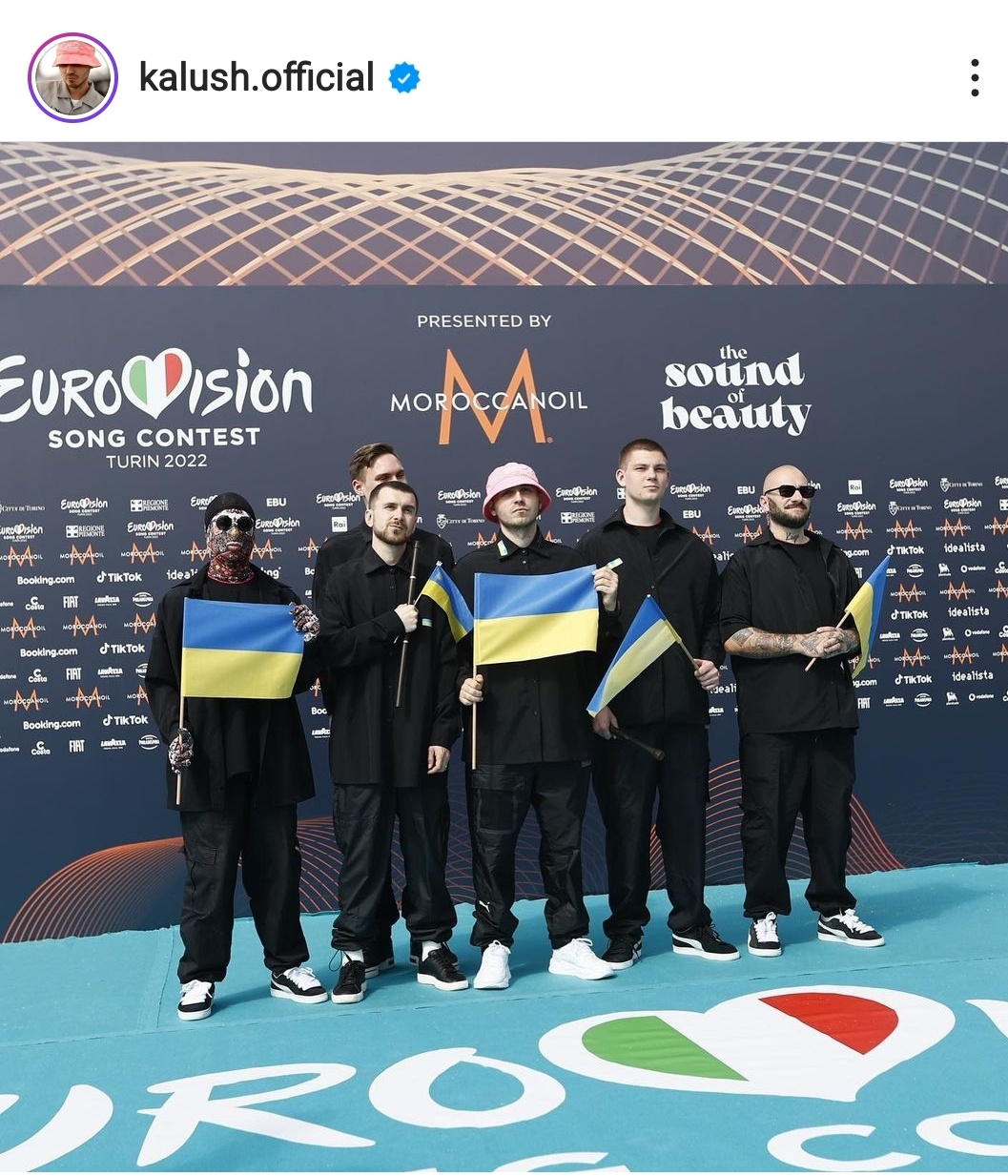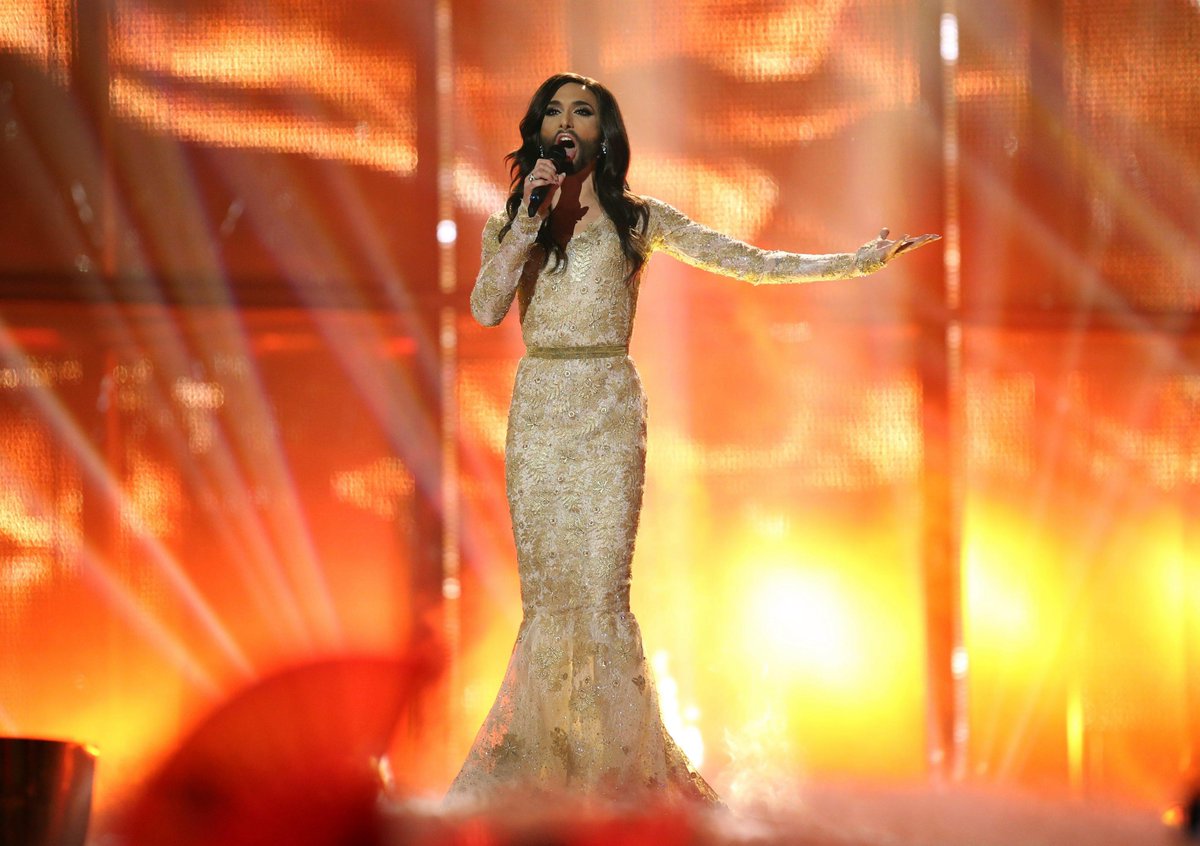
Ukraine tipped to win Eurovision, but is it the song or the political background that matters?
The Eurovision Song Contest is well under way in Turin, Italy, this week. Following the semi finals on Tuesday and Thursday, the best song will be selected on Saturday. According to bookmakers' predictions, Ukraine's entry will produce a landslide victory, but analysts say that this may be for political reasons. Russia was excluded from the contest and, in recent years, a growing number of people have asked whether the festival was really about the songs, or has it become a stage to showcase current Western trends?
Stefania, now dubbed Ukraine’s new national anthem
This year, Ukraine will be represented by the Kalush Orchestra’s song, Stefania. The song about a mother and motherland combines hip-hop with traditional Ukrainian folk motifs. The band leader has dedicated the song to his mother and most of the lyrics were written before the war broke out. Because of its frequently quoted line (I’ll always find my way home, even if all roads are destroyed) it is extremely popular in Ukraine, with many considering the song the country’s new anthem.

Photo: Instagram
As members of the Kalush Orchestra, aged between 21 and 35, are all military-aged men, they could only leave the country with a special permit via Poland. They promised to return to their homeland after the contest and try to be „of service” to their country.
Alina Pash won, but became the nation’s enemy
Originally, the Kalush Orchestra would not have represented Ukraine at this year’s Eurovision Song Contest. Although the young men finished first in the public vote, they were awarded only the third highest score from the professional jury, and came in second in the overall ranking. However, Alina Pash, who qualified to participate, was essentially forced to withdraw under growing pressure.

Photo: Instagram
Alina Pash, who comes from Transcarpathia, entered the contest with a patriotic song. She sang in Ukrainian wearing an outfit that evoked national motifs in character, but she could not cope with the pressure from Ukrainian nationalists. The scandal erupted when it came to light that she staged a concert in Crimea in 2015, a year after Russia’s annexation of the peninsula. Although it is not illegal for a Ukrainian citizen to visit Crimea, it is against the law to travel there via Russia. Because of her trip, Alina came under heavy fire in the media, and eventually she withdrew, saying that the attacks have become too much for her.
„I’ve had enough of this virtual war and hatred. The real war came to my country from outside, in 2014. With a heavy heart, I will withdraw my candidacy as the representative of Ukraine in the Eurovision Song Contest,”
she wrote in her post. Alina has since been added to a notorious list enumerating Ukraine’s enemies by the nationalist Mirotovec (Peacemaker) website. Its operators are now making all efforts to find as much “evidence” as possible to prove that the young singer’s relationship with Russians can be considered „too good”.
Bookmakers expect Kalush Orchestra victory
Figures published on eurovisionworld.com on the afternoon of 10 May show that the Ukrainian song is clearly the favourite, with a winning chance of 49 per cent, way ahead of the Italian song, which is now in the second spot with 13 per cent. Bookmakers offer odds between 1.47 and 1.68 for the Ukrainian contestant, meaning that a 1-euro bet will likely pay one and a half euros, if Kalush Orchestra does win the song contest.

Photo: Instagram
Russians excluded
Merely a day after the outbreak of the Russia-Ukraine war, Russia was excluded from the Eurovision Song Contest. The European Broadcasting Union (EBU) justified the decision on the grounds that – because of its conflict with Ukraine – Russia’s participation would throw bad light on the festival. Russia made its explosive debut at the Eurovision scene in 2006 with Dima Bilan, who came in second in 2006 and went on to win the contest later, in 2008.
Ukraine may receive sympathy votes
The General Organisation of Eurovision Fans (OGAE) is an international body consisting of a network of 43 Eurovision Song Contest fan clubs across Europe and beyond. It gathers fans who follow the event with keen interest, and even promote the Eurovision Song Contest and its contestants. Although the contest was launched in 1956, OGAE was only established in Finland in 1984. According to the secretary of the network’s French member organisation, Ukraine can also expect votes because it is being ravaged by the war.
Benoit Blaszczyk believes that the Ukrainian contestant, besides the anticipated sympathy votes, can also expect a good run because their song is good. He emphasized that Ukraine tends to achieve good results each year, and the country’s entry usually make it into the final.
Experts are concerned that politics can be a factor in selecting this year’s winner
Slobodan Todorovic, the chief editor of Eurovizija.rs says that every performance must be evaluated by its merits.
„Ukraine’s possible victory for political reasons would cast a bad light on Eurovision and the values it represents – neutrality, political independence and a celebration of diversity,” Todorovic told AFP, the N1 news portal reports.
The Kalush Orchestra, on the other hand, has already achieved success merely by performing at the International festival. Ukrainian men of military age are currently not allowed to cross the border. The band members, who also fall in that category, have received special permission for that.
„By having the opportunity to perform, they can leave the country and they receive messages from supporters. This, in itself, is a success for them,” said Din Vuletic, a Croatian historian and geopolitical expert of the Eurovision festival. He is of the opinion that support for the Ukrainian group is tangible, but their victory is still not certain. He recalled that countries like Bosnia and Herzegovina or Croatia also failed to win the 1993 Eurovision Song Contest, despite the wars raging in those countries. Europe stood by them, but they did not achieve outstanding results even despite this support. „The Ukrainians do have a quality entry, but there are other some excellent contestants!” Vuletic added.
Europe supports Ukraine, not Russia
The political environment has always influenced the Eurovision Song Contest and the selection of the winner, Serbian songwriter and singer Marko Kon told the daily Danas. Kon already participated in the song contest on several occasions.
„There is some element of politics to song and musical contests, too. They can’t be apolitical, similar to sports competitions. This is always the case when nations compete against each other. This is natural, just like the fact that we cheer for a contestant for some reason or another. It is considered a political stance, and it is normal that politics is involved in all this. Europe took a firm stand by Ukraine a long time ago and does everything to support Ukraine, and not Russia. I think it’s logical that Ukraine would win the song contest.”
Marko Kon emphasized.
Musician Ana Stanic also shares Marko Kon’s views. Stanic believes that it is normal for people to vote for Ukraine out of compassion. This does not mean that the song is bad, she added, arguing however, that such an expression of support will certainly be a key factor in the song contest.
The Eurovision Song Contest has always been a mirror that reflects the current state of pop culture and politics in general, Boris Miljkovic, creative director of the Serbian Radio and Television said. Nevertheless, he was confident that Serbia’s entry will also achieve outstanding results.

Photo: Twitter
What is Eurovision about?
The Eurovision Song Contest has been held regularly since 1956. Besides European countries, Australia also participates. Some consider it a celebration of pop music, but it also represents many other musical styles ranging from folk all the way to metal. In recent years, however, some other aspects have also come to the fore, like the visuals, a category in which both the contestants and host countries try to outdo each other every year. Contestants’ general attempt to shock viewers is also key. They will do their best to ingrain their performances in people’s collective memory, for instance by showing a woman’s thigh or displaying a formidable mask. It is now practically a fact that a contestant delivering a restrained performance of a well-composed song with non-political lyrics is no longer enough to win Europe’s song contest, an increasing number of experts believe.

